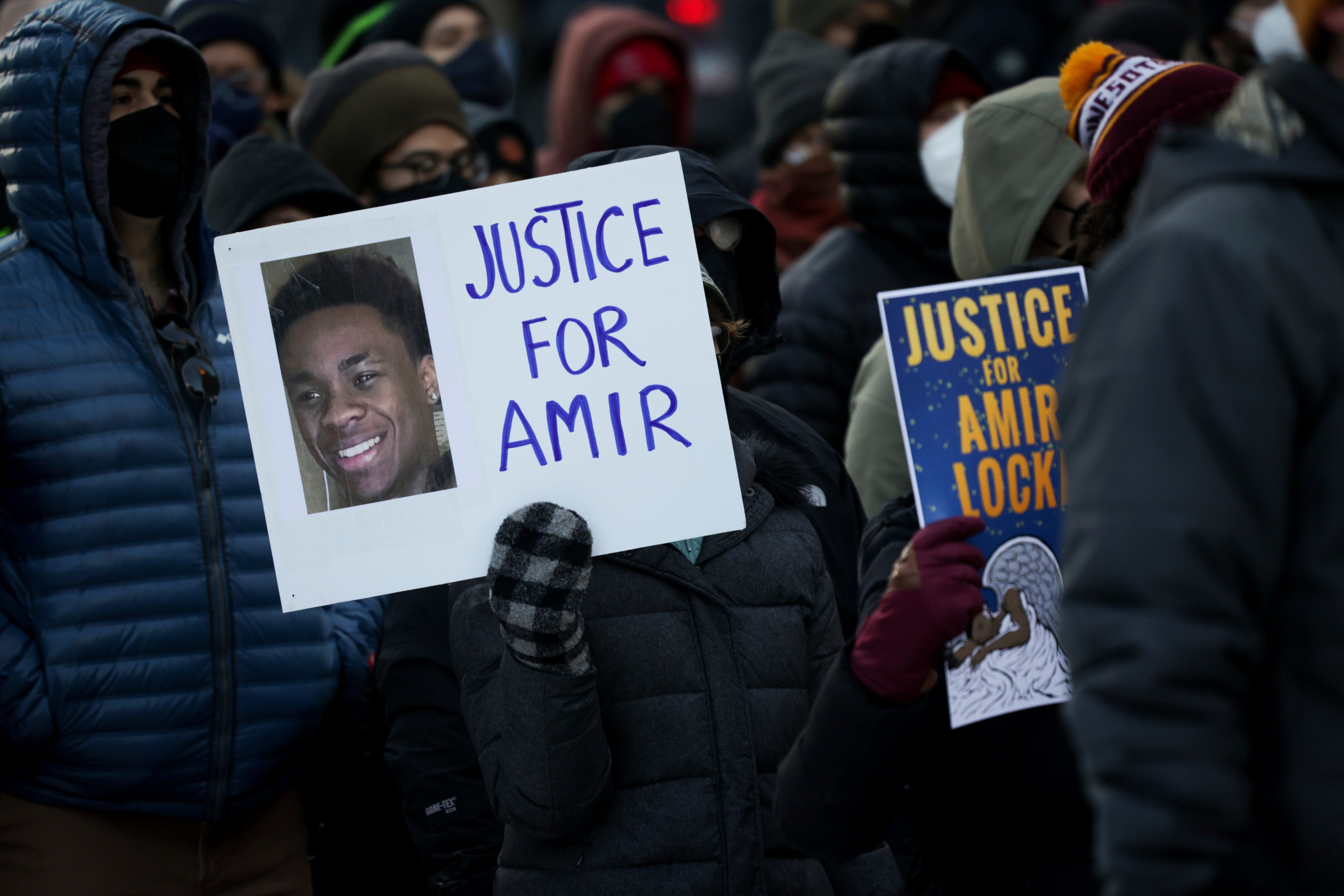Cop safety cited in no-knock warrant ahead of Locke's death
Documents show authorities searching the Minneapolis apartment where Amir Locke was killed by a SWAT team member said they believed a no-knock search warrant was necessary to protect the public and officers investigating a violent homicide

Your support helps us to tell the story
From reproductive rights to climate change to Big Tech, The Independent is on the ground when the story is developing. Whether it's investigating the financials of Elon Musk's pro-Trump PAC or producing our latest documentary, 'The A Word', which shines a light on the American women fighting for reproductive rights, we know how important it is to parse out the facts from the messaging.
At such a critical moment in US history, we need reporters on the ground. Your donation allows us to keep sending journalists to speak to both sides of the story.
The Independent is trusted by Americans across the entire political spectrum. And unlike many other quality news outlets, we choose not to lock Americans out of our reporting and analysis with paywalls. We believe quality journalism should be available to everyone, paid for by those who can afford it.
Your support makes all the difference.Authorities searching the Minneapolis apartment where Amir Locke was killed by a SWAT team member said they believed a no-knock search warrant was necessary to protect the public and officers investigating a violent homicide, according to documents made public Thursday.
The applications for the search warrants executed at the apartment complex on Feb. 2 were released in redacted form after numerous requests.
In them, St. Paul police Officer Daniel Zebro asked that officers be allowed to conduct the search without knocking, and outside the hours of 7 a.m. and 8 p.m., because the suspects being sought in the Jan. 10 murder of Otis Elder had a history of violence. Zebro also noted that Elder was killed with a .223 caliber firearm, which he said could pierce body armor.
“.223 Caliber rifle rounds can penetrate police body armor,” Zebro wrote. “A no-knock warrant enables officers to execute the warrant more safely by allowing officers to make entry into the apartment without alerting the suspects inside. This will not only increase officer safety, but it will also decrease the risk for injuries to the suspects and other residents nearby.”
Locke was killed seconds after the SWAT team entered the apartment where his family said he was staying. Body camera video shows an officer using a key to unlock the door and enter, followed by at least four officers in uniform and protective vests, time-stamped at about 6:48 a.m. As they enter, they repeatedly shout, “Police search warrant!” They also shout “Hands!” and “Get on the ground!”
The video shows an officer kicking a sectional sofa, and Locke is seen wrapped in a comforter, holding a pistol. Three shots are heard and the video ends.
Minneapolis police say Locke was shot after he pointed his gun in the direction of officers, but Locke’s family has questioned that.
Locke’s death has sparked protests and an immediate reexamination of no-knock arrest warrants. Minneapolis Mayor Jacob Frey last week announced a moratorium on such warrants while the city brings in outside experts to study its policy. Some state lawmakers are pushing for a statewide ban except in rare circumstances.
The search warrants were carried out as part of an investigation into Elder’s death. Elder, a 38-year-old father, was found shot and laying in the street on Jan. 10 in what police believe was an apparent robbery. Drugs and money were found in Elder's SUV, according to court documents.
As they were investigating the murder, police sought warrants that would have required them to knock at multiple locations, as well as warrants that would have allowed them to enter unannounced. In the application for the no-knock warrants, Zebro said it was necessary to “prevent the loss, destruction or removal of the objects of the search or to protect the searchers or the public.”
Some names in the search warrants are redacted, but police have said Locke was not among those named. Locke’s 17-year-old cousin, Mekhi Camden Speed was named. Speed was arrested this week and charged with two counts of second-degree murder in connection with Elder’s death.
To support the no-knock entry, Zebro said Elder’s killing was violent and that the suspects were later seen entering the Minneapolis apartment complex. He also said surveillance video captured Speed trying to cover up an item in his pants, which police believed was the murder weapon.
The warrant applications say Speed and others — some who are named and some who are not — also have a history of violent crimes, including robberies, incidents involving guns and fleeing police. He wrote that investigators also monitored their “Instagram and Facebook social media accounts, where the suspects are posting videos and pictures while holding various firearms.”
___
Find AP’s full coverage of the death of Amir Locke at: https://apnews.com/hub/amir-locke